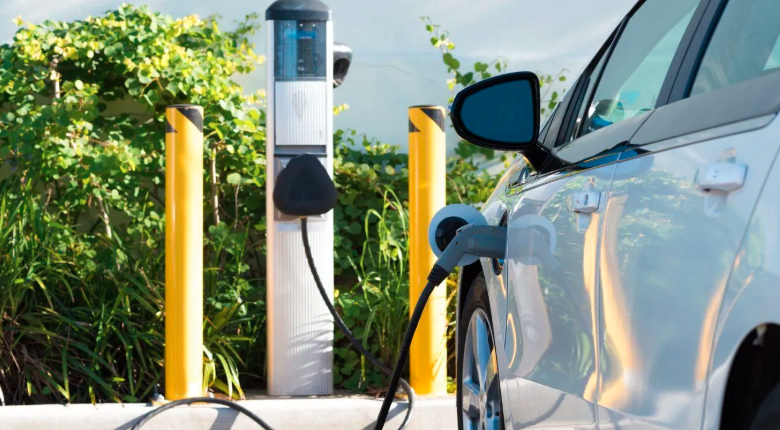ev charging stations manufacturers: driving the future of electric mobility

the global push toward sustainable transportation has accelerated the demand for electric vehicles (evs) and the infrastructure that supports them. at the heart of this transformation are the ev charging stations manufacturers, companies dedicated to designing, producing, and deploying charging solutions that empower the electric vehicle revolution. these manufacturers not only provide the hardware but also develop intelligent systems that optimize charging, enhance user experience, and integrate seamlessly with power grids.
this article delves into the dynamic world of ev charging stations manufacturers highlighting their crucial role in the transition to cleaner mobility, the types of charging stations they produce, industry challenges, technological innovations, and the future outlook of this booming sector.
understanding the role of ev charging stations manufacturers
the success of electric vehicles largely depends on the availability, reliability, and convenience of charging infrastructure.
their responsibility goes beyond simply producing chargers. these manufacturers incorporate smart features like network connectivity, user authentication, payment processing, and energy management systems that enable efficient operation and integration with renewable energy sources.
See also:Top 3 Kuala Lumpur Travel Attractions Nobody Should Miss
diverse product portfolio of ev charging stations manufacturers
one key advantage of top ev charging stations manufacturers is their ability to offer a comprehensive product range addressing different charging scenarios:
- residential chargers: designed for home use, these chargers typically provide alternating current (ac) power at manageable speeds, allowing overnight charging. manufacturers focus on user-friendliness, safety, and compact design to fit residential settings.
- commercial and public ac chargers: these units are installed in parking lots, workplaces, malls, and other public spaces. they offer higher power output than home chargers and often include networked features such as remote monitoring, reservation systems, and usage tracking.
- dc fast chargers: essential for highway corridors and urban hubs, these chargers deliver direct current (dc) at high power levels, drastically reducing charging time. ev charging stations manufacturers specializing in dc fast chargers must ensure durability and rapid cooling systems to handle intense usage.
- ultra-fast charging stations: a relatively recent innovation, these chargers provide extremely high power output (often above 150kw), enabling ev users to recharge in minutes, thus mimicking the convenience of traditional fuel stations.
key technological innovations by ev charging stations manufacturers
to stay competitive and meet evolving market demands, ev charging stations manufacturers invest heavily in innovation. some noteworthy technological trends include:
- smart charging solutions: integration of internet of things (iot) technologies allows chargers to communicate with vehicles, grid operators, and users
- interoperability and universal standards: manufacturers ensure compatibility with various ev models by supporting multiple charging protocols such as ccs (combined charging system), chademo, and gb/t. this flexibility increases charger usability and adoption.
- some manufacturers develop chargers that incorporate renewable energy sources or support vehicle-to-grid (v2g) functionality.
- user interface enhancements: touchscreens, mobile app integration, and voice commands improve ease of use, offering real-time information on charging status, pricing, and station availability.
challenges faced by ev charging stations manufacturers
despite rapid growth, ev charging stations manufacturers encounter several hurdles:
- infrastructure development: charging stations require robust electrical infrastructure. in many areas, upgrading the grid or securing adequate power supply is necessary but costly.
- high upfront costs: manufacturing advanced charging stations, especially dc fast chargers, involves significant investment in components and technology, impacting pricing.
- standardization issues: differing protocols and connectors worldwide complicate product design and increase manufacturing costs.
- market competition: as more companies enter the sector, manufacturers must continuously innovate and maintain quality while keeping costs competitive.
- regulatory compliance: navigating diverse safety, environmental, and operational regulations across regions requires expertise and resources.
the impact of ev charging stations manufacturers on global electrification
- reduce range anxiety: ensuring widespread availability of chargers gives consumers confidence to adopt evs without fearing battery depletion.
- promote environmental goals: expanding ev use cuts greenhouse gas emissions and air pollution, especially when chargers are powered by renewable energy.
- support economic growth: the industry generates jobs in manufacturing, installation, maintenance, and software development.
- enable smart grid development: advanced chargers help balance electricity demand, facilitating renewable integration and grid stability.
conclusion
by developing innovative, reliable, and scalable charging solutions, they enable widespread electric vehicle adoption and contribute significantly to environmental and economic progress.
stakeholders looking to invest in or deploy ev charging infrastructure must carefully assess manufacturers based on technology, quality, and service to ensure success. as technology evolves and market demand grows, ev charging stations manufacturers will remain at the forefront, powering a cleaner, smarter transportation future for all.





